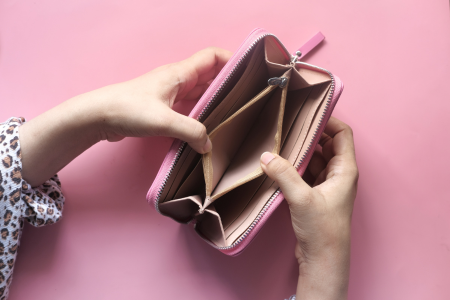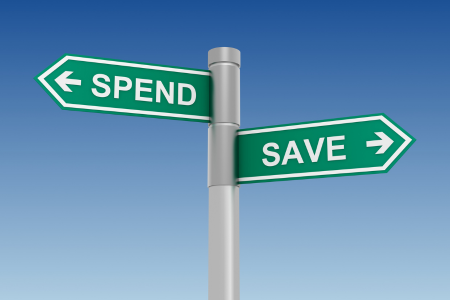10 Ways Lifestyle Inflation Might be Creeping Into Your Life
So there I was, landed my first official nurse job right out of college. Finally, I was making a real, big-girl nurse salary. And I thought, “Great, no more stressing about making ends meet.” But what I didn’t realize back then was something called lifestyle inflation. Instead of saving more, I found myself racking up my credit card bill. And let’s not forget my daily pre-shift Starbucks coffee—I just had to have.
Before long, I was deep in the trenches of lifestyle inflation. I had to step back and ask myself, “What’s going on with my money? Why is my savings dwindling, and why am I drowning in credit card debt?” That’s when I took a hard look at what led me to this point and realized I’d fallen into this lifestyle inflation trap. So, in this post, let’s talk about the warning signs that could mean you’re heading in the same direction.
What is lifestyle inflation?
Lifestyle inflation, or lifestyle creep, is when you start spending more just because you’re earning more. When many of us get a pay raise, we feel like we need to level up everything else in our lives —a bigger house, a nicer car, and more nights out at fancy restaurants. Sound familiar?
And hey, I’m not saying lifestyle inflation is a bad thing. In fact, I think lifestyle inflation is needed to a certain extent. It’s totally normal to want to enjoy the extra cash you’re bringing in. I mean, who wouldn’t want to reward themselves a little, right?
But here’s the catch: if you’re not keeping an eye on your bank account, this bump in spending can throw a wrench in your long-term financial plans. I’m talking about important stuff like saving up for retirement or working towards financial independence. Before you know it, those short-term, “treat yoself” moments could make a big dent in your future goals. So, my advice is that it’s all about finding that sweet spot where you can enjoy your hard-earned money now without sacrificing your financial future. It’s a bit of a balancing act and may take some trial and error, but it’s nothing you can’t handle!
10 Signs that show you may be falling victim to lifestyle inflation

1. Your Income Increases, But Your Savings Don’t
Absolutely, getting a raise is an amazing feeling and definitely something to celebrate. But here’s the thing: if you’re not seeing a reflection of that raise in your savings, it might not be as beneficial as it seems for your financial well-being.
Think of it this way—while your paycheck gets bigger, if your spending jumps up to match, you’re not improving your financial situation in the long run. That extra cash should ideally be helping you build a cushion for the future, whether for emergencies or even just some peace of mind.
As your income rises, you should also make sure that you’re putting more into savings. Otherwise, you’re just at a financial stand-still, even though you’re bringing in more money. This would be a good time to take another look at your budget and make sure that extra income is working for you, not just disappearing into your day-to-day spending.
2. Living Paycheck to Paycheck
Living paycheck to paycheck can be a tough cycle to break, especially when it feels like the more you earn, the more you spend. You know the feeling—you see your paycheck increase, but somehow, at the end of the month, there’s barely anything left in your bank account.
Even with a fatter paycheck, it seems like you’re just managing to get by, and that’s not the kind of progress anyone wants. It’s almost as if your expenses magically expand to fill whatever income you have, leaving little room for savings or any room to breathe.
This is where it becomes important to step back and evaluate where your money is going. Are there areas where you’re overspending without really noticing? Maybe those frequent online shopping sprees or eating out several times a week are eating up more of your budget than you realized.
By spotting and getting ahold of these habits, you might find you can start setting aside a little extra each month, helping you break free from the paycheck-to-paycheck cycle. The goal is to gradually build a financial buffer that gives you more flexibility and less stress about paying your bills, even as your income grows.
3. Asking Yourself Where All Your Money Went
If you regularly find yourself asking, “Where did all my money go?” it might be because you’re spending on little extras without even noticing it. It’s so easy to lose track of spending with small purchases here and there. They start to add up, and suddenly, you’re left scratching your head at the end of the month, wondering how your paycheck vanished so quickly.
These expenses might seem minor at the moment—like coffee runs or impulse buys online (I’m so guilty of this)—but they can sneak up on you. Sometimes, a little awareness is all it takes to get things back on track and save more every month.
4. Ignoring Saving and Retirement Planning
When you start earning more, it’s also a good idea to bump up your savings and retirement contributions. But if they’ve hit a standstill or gone down, lifestyle inflation might be a part of that. It’s easy to get caught up in the excitement of having more money and skip over the part where you should also increase your savings.
Sure, retirement may be a long way away for you. But the truth is that ignoring saving and planning for retirement can catch up with you down the road. Instead, think about using a bit of that extra income to beef up your financial security. Maybe set up automatic transfers to a savings account or increase your retirement contributions a tiny bit. Keep your future self in the back of your mind and you won’t have to stress about this kind of stuff later on.
5. Not Setting a Budget
The best way to describe not having a budget is like trying to get around in a new city without a map. And I’m no angel. It took a long time for me to set up a budget myself. Without a budget, you spend on whatever is in front of your face on Instagram or wherever. Before you know it, you spent all your money on unnecessary car accessories that some influencers said you needed. And with today’s technology, it’s easier than ever to save your card information to websites you shop all the time (cough, cough, Amazon). You need something to guide your spending choices.
Making a budget doesn’t have to be complicated—it’s just a plan for your money every month. It helps you track where your money is going and helps you make sure you’re putting away money for savings and other financial goals. It can also give you the freedom to spend on things you actually love without the guilt trip later on. Creating a budget can help you control your money better and keep those impulses in check.
6. Taking on Unnecessary Debt
When you start leaning more on credit cards or financing for things you used to be able to cover fully with your budget, it’s a sign that unnecessary debt is creeping in. Using your credit card to buy the latest iPhone or treat yourself to something special can be tempting. But this can spiral into a debt cycle that is tough to dig yourself out of.
Taking on unnecessary debt can add up, especially when you factor in interest and fees. Before long, you might end up with more monthly bills than you planned for. Instead, try accounting for these expenses in your budget or save up for them over time.

For example:
My husband and I have a separate savings bucket for items we want to buy. If that account doesn’t have the funds to buy the item, we don’t buy it until we’ve saved enough.
7. You Keep Upgrading Purchases
If you’re always itching for the latest phone or car, even when the ones you have work just fine, it might be a good time to reflect on why you always want to upgrade. It’s easy to get caught up in the newest, shiniest thing, especially with all the hype around new releases.
If you think more about it, the happiness you get from that thing only lasts a short while. Then you’re back to wanting the next latest and greatest thing. And again, it’s another vicious cycle that can be hard to break.
Constantly spending money on upgrades can drain your wallet FAST. Next time you’re thinking of upgrading, think if you really want that thing. Or is it just the thrill of something new pulling you in? A little patience can go a long way and keep your money on track while still letting you have the occasional splurge.
8. Keeping Up With Friends
I feel like we’ve all been guilty of this from time to time. There’s a reason they call it peer pressure, right? But if you’re spending a lot to keep up with friends, it’s way too easy to end up in trouble. Things like going out to dinner a lot, weekend getaways, or a designer bag, the pressure to keep up with other people can screw up your finances.
Everyone’s financial situation is different. You could see them going on a fancy trip out of the country every month but the truth could be that they’re up to their neck in credit card debt. What works for someone else might not be what’s best for you. Instead of trying to keep up, focus on what makes you happy without stretching your wallet.
You could suggest other, more affordable hangout ideas, or you may have to suck it up and say no to some activities. If they’re really your friends, they’ll understand. Find a balance that keeps your bank account and your social life in a good place.
9. Impulse Buying
You know how it goes—you’re at the store or scrolling Instagram, and something catches your eye. You weren’t planning on buying this item, but it’s so cute that you just have to have it. Before you know it, you’ve pressed ‘purchase item’, and it’s at your door the next day.
These spontaneous buys can lead to buyer’s remorse later on, especially when you’re looking at your bank statement at the end of the month. To get over this habit, try setting some rules for yourself. Maybe try waiting a certain amount of time before going back and making the purchase, or create a list that you stick to when you go shopping.
For me, I love to go crazy and add everything I want to my cart. But I don’t buy right then and there. I come back a day or so later and decide what I want and what was just an impulse. Most of the time, I don’t even go back to the shopping cart. But even just adding the items to ‘my bag’ helps me curb my itch to impulse buy.
10. Luxury Spending

Luxury spending can be super tempting, especially when you feel good about your finances. Whether indulging on designer clothes, fancy dinners, or luxurious vacations, it’s easy to justify these purchases when you have more cash coming in. After all, you deserve to treat yourself, right?
But here’s the catch: frequently spending on luxury things can seriously impact your budget and long-term financial goals. Once again, it’s all about finding a balance. You’re starting to see the theme here?
Instead of diving headfirst into luxury spending, treat it as an occasional reward rather than a regular thing. You could set aside a specific amount each month just for those indulgences, which lets you enjoy them guilt-free while still putting your savings first and other financial goals.
What is the impact of lifestyle creep?
Lifestyle creep can have a significant impact on your finances and if you’re not careful, it can throw a wrench in your future plans. When you let your expenses balloon with your income, it can slow down your ability to save for important things later.
Lifestyle inflation could even lead to you accumulating debt. If you’re constantly upgrading your lifestyle, you might lean more toward credit cards or dip into your savings to fund these splurges.
Once you get used to this kind of lifestyle, it’s hard to give it up. This is why keeping your lifestyle creep in check from the start is so important.
Mindful Spending
When I talk about mindful spending, I mean to be intentional with your purchases. Instead of making decisions based on impulse or sales, pause to evaluate and reflect on each purchase. Ask yourself questions like, “Will this add real value to my life?” or “Do I need this right now?” Practicing mindfulness in spending helps you understand your motivations and aligns your purchases with your values and goals. It’s a good way to enjoy your money without falling into the trap of lifestyle inflation, helping you to prioritize experiences or things that truly matter to you.
Comparing Needs Vs. Wants
Knowing the difference between needs and wants is one key to managing your finances well. Needs are essentials—things like food, shelter, and healthcare—while wants are nice-to-haves that can make life enjoyable but aren’t needed for survival. Taking the time to identify these categories can help you make better spending choices. By prioritizing your needs and being more critical about your wants, you can figure out your resources and keep lifestyle inflation down.
Final Thoughts on Lifestyle Inflation
Lifestyle inflation can sneak up on you, no matter how much you earn. It’s important to recognize the early signs, practice mindful spending, and know the difference between needs and wants. Doing this can help you stay on track with your financial goals.
So, when you think about your next purchase, consider how lifestyle inflation could affect your spending.
I’d love to hear your thoughts! Have you dealt with lifestyle inflation, or do you have tips for smart spending? Drop a comment below, and let’s chat about it.
Related Posts
How to Improve Your Budget: 5 Super Simple Strategies Every Nurse Needs to Know
3 Ways to Increase Your Savings
3 Reasons Nurses Splurge on Expensive Cars


Pingback: 3 Reasons Why Nurses Splurge on Expensive Cars | Greener Scrubs
Pingback: 6 Advantages of Owning a Home That Will Change Your Perspective | Greener Scrubs